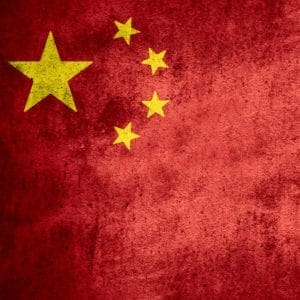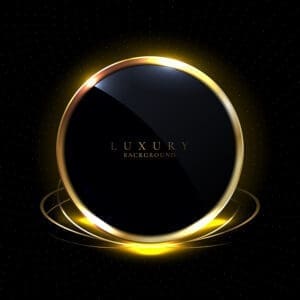
As I sit down for afternoon tea in Palm Court, the lobby lounge at The Langham Auckland, I’m astounded by the immaculate presentation, the flawless service and the attention to detail in every corner at this incredible New Zealand hotel. It’s a luxury property that feels quintessentially European and yet is about as far away from the continent as is possible.
After acquiring the property in 2005, the Langham Hospitality Group spent over $12 million to refurbish the 411-room hotel (in addition to many other subsequent upgrades) and model it after The Langham London with its grand tradition of Victorian elegance and sophistication. Look no further for evidence of this than the exquisite Langham Afternoon Tea at Palm Court or a formal gathering at The Great Room which can seat 900 guests. To help elucidate readers on how this property excels and what differentiates New Zealand hospitality, I met with The Langham Auckland’s General Manager, Franz Mascarenhas, who brings more than 30 years of experience working throughout Southeast Asia to the job.
 Have you experienced a dramatic shift of inventory sales to the OTAs? If so, what steps are you taking to control the income displacement?
Have you experienced a dramatic shift of inventory sales to the OTAs? If so, what steps are you taking to control the income displacement?
The region has generally seen a large amount of internet-driven business largely due to the strong brand presence from Wotif.com over the past ten years. This has naturally increased with the emergence and growth from the likes of Booking.com and Expedia in our region at the expense of traditional wholesale models.
While we partner with OTAs to extend our global reach, our direct business has always been strong and is one of our highest yielding channels, which shows that our loyal and valued customers have confidence in the Langham Hospitality Group’s Best Rate Guarantee. The company has also recently invested in a group-wide roll-out of our new website with great feedback from our customers.
Have third-party review sites made an impact on business practices?
TripAdvisor is a great tool in order to better understand what the customer is saying about us, and has definitely ensured that hoteliers must continue to evolve to stay at the top of our game. It has allowed us to actively engage with customers, both satisfied and dissatisfied; gives the consumer a global voice and the hotelier the opportunity to listen to our guests’ needs and ultimately exceed expectations to deliver a truly luxurious experience. Consumer reviews across other third-party OTAs, while not as strong, are still an important tool for the hotel to understand what our mutual customers are saying.
 How do you maintain a high service culture amongst staff in a relatively small market?
How do you maintain a high service culture amongst staff in a relatively small market?
Our focus on quality begins with the recruitment process wherein efforts are made to ensure we are recruiting the right people for the job with commensurate remuneration. New recruits have the benefit of extensive orientation and training programs to equip them to provide our guests with a high level of guest experience. The Langham Group also provides all its hotels with training tools such as comprehensive brand standards which then ensure a consistency in service levels right across the globe.
What steps do you take to manage costs?
Import duties, for example, are not excessively high and are just absorbed as a cost of business. The largest single cost within our business is labor, especially when we consider The Langham Auckland has the highest staff-to-guest ratio of any large hotel in New Zealand. We believe management of costs, though important, is secondary to our focus on quality, as this ultimately drives our customer satisfaction and consequent profitability.
How has The Lord of the Rings and The Hobbit trilogies influenced your business?
Although it is difficult to draw specific correlation with the films and our business, it is without doubt that they have provided our country with immense positive publicity, especially in the US. We have seen an upsurge in travel from the US in recent times following the economic downturn of 2008-2009, and have a very positive outlook for our industry in the years ahead.
What are the key differences in hospitality operations between properties in New Zealand and those in larger markets?
New Zealand provides a more relaxed approach to hospitality, with genuine heartfelt service but without the formality you would experience possibly in some European countries. I believe this is a positive differentiating factor for us. Alongside this aspect, hotels such as The Langham Auckland provide guests with a strong value proposition primarily due to the competitiveness of rates we offer as compared with other major cities. We provide the same brand standards as our sister hotels in large markets, the same quality amenities and the same service standards, but at one-third the rate of, say, London or New York City.
About the author
 Larry Mogelonsky (larry@lma.net) is the president and founder of LMA Communications Inc. (www.lma.ca), an award-winning, full service communications agency focused on the hospitality industry (est. 1991). Larry is also the developer of Inn at a Glance hospitality software. As a recognized expert in marketing services, his experience encompasses Four Seasons Hotels & Resorts and Preferred Hotels & Resorts, as well as numerous independent properties throughout North America, Europe and Asia. Larry is a registered professional engineer, and received his MBA from McMaster University. He’s also an associate of G7 Hospitality, a member of Cayuga Hospitality Advisors and Laguna Strategic Advisors. His work includes three books “Are You an Ostrich or a Llama?” (2012) and “Llamas Rule” (2013) and “Hotel Llama” (2014). You can reach Larry at larry@lma.ca to discuss any hospitality business challenges or to review speaking engagements.
Larry Mogelonsky (larry@lma.net) is the president and founder of LMA Communications Inc. (www.lma.ca), an award-winning, full service communications agency focused on the hospitality industry (est. 1991). Larry is also the developer of Inn at a Glance hospitality software. As a recognized expert in marketing services, his experience encompasses Four Seasons Hotels & Resorts and Preferred Hotels & Resorts, as well as numerous independent properties throughout North America, Europe and Asia. Larry is a registered professional engineer, and received his MBA from McMaster University. He’s also an associate of G7 Hospitality, a member of Cayuga Hospitality Advisors and Laguna Strategic Advisors. His work includes three books “Are You an Ostrich or a Llama?” (2012) and “Llamas Rule” (2013) and “Hotel Llama” (2014). You can reach Larry at larry@lma.ca to discuss any hospitality business challenges or to review speaking engagements.
This article may not be reproduced without the expressed permission of the author.





















